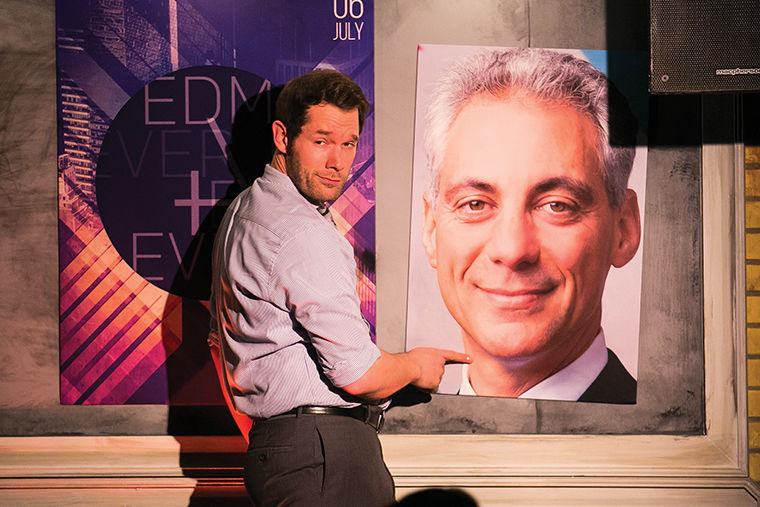Second City’s ‘Red Line Runs Through’ select stations
The Second City e.t.c. A Red Line Runs Through It. Lisa Beasley Aasia Bullock Peter Kim Katie Klein Julie Marchiano Scott Morehead.
May 9, 2016
The Second City e.t.c.’s 40th Revue opened May 5 with a refreshing change—a predominantly female cast for the second time in company history—but only a few belly laughs.
“A Red Line Runs Through It” at the company’s e.t.c theater, 230 W. North Ave., features four women and two men. It gets high marks for creative jokes but not for the uneven quality of sketches.
Returning e.t.c. cast members Lisa Beasley and Scott Morehead, from past e.t.c. revue “Soul Brother, Where Art Thou,” were joined by Aasia Bullock, Katie Klein, Julie Marchiano and Peter Kim, the first gay Asian man to be on one of the company’s residency stages.
The show’s diverse cast, which showcased two black female comedians, gave voice to issues that might otherwise be ignored. Bullock and Beasley made fun of “white people food,” discussed the Black Lives Matter Movement and shared a sketch called “Black Girl Magic,” making references to Beyoncé’s “Formation.”
Directed by Matt Hovde and composed by Jesse Case, the show included a few memorable musical numbers with hip-hop choruses that beautifully mimicked the hit Broadway musical “Hamilton.”
The Red Line stations referenced in the show’s title are the backdrop for a number of skits, conveying the show’s theme of past, future and the ever-changing landscape of uncertainty. Some skits poked fun at specific stations, like Kim and Marchiano’s date-night scene off the Wilson stop, where gunshots could be heard outside of a studio apartment.
Unfortunately, much of the show’s political humor didn’t connect with the crowd, leaving pockets of silence that may have been a sign that the show’s content was too serious for a Saturday night.
Mayor Rahm Emanuel got a great deal of stage time in the form of a large portrait hanging on stage left, but a joke about his four-fingered hand fell flat.
The show fared better with a sketch criticizing Emanuel for approving DePaul University’s new stadium at McCormick Place, part of his $300 million in architecture projects, instead of putting money toward city needs like education and public housing, in their perfect-burn of a song “Rama Lama Ding Dong.”
The city-related inside jokes were also left hanging among tourists while locals laughed out loud. For instance, a sketch about Frank Lloyd Wright’s museum in Chicago suburb Oak Park garnered minimal audience engagement, attesting to the audience’s makeup of mostly out-of-towners.
Compared to the Mainstage’s show “Fool Me Twice, Dèjá Vu,” the revue’s sketches felt rushed and left some strings untied.
The writing was clever and brutally honest, but tightening it a bit and further kneading the punchiest political pricks would have given the audience a comedy package they would not forget.








